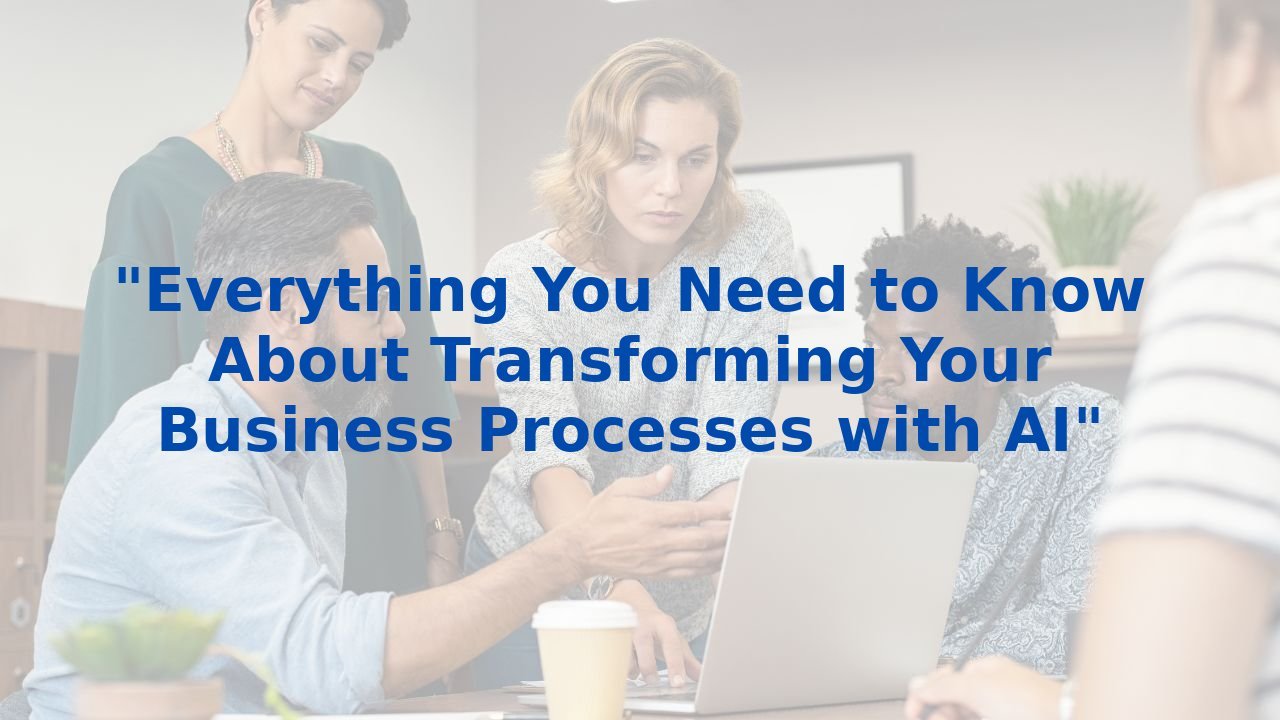How To Protect Creative Rights While Leveraging AI in Business
The Future of Creative Work: AI, Consent, and Business Processes
In our fast-evolving digital landscape, the intersection of artificial intelligence and creative work is becoming increasingly complex. Recently, a significant stride has been made towards protecting artists' rights with the proposed Content Origin Protection and Integrity from Edited and Deepfaked Media Act (COPIED Act). This legislation aims to safeguard the creative community by making it illegal for companies to utilize artists' content for AI training without explicit consent. Let’s explore the implications of this initiative while also delving into how AI can enhance business processes and the importance of training employees for this evolving landscape.
Understanding the COPIED Act
The COPIED Act introduces critical provisions that would mandate AI creators to develop tools ensuring that content is protected with proper provenance and watermark data. Furthermore, the National Institute of Standards and Technology (NIST) is set to establish standards for these practices. This shift means that artists, journalists, musicians, and other creatives could have grounds for legal action should their work be exploited without permission.
But why does this matter for businesses? The potential for AI to enhance operational efficiency is vast, yet it must coexist harmoniously with the rights of creators. Businesses need to recognize the value of ethical AI practices, which can ultimately enhance their reputations and foster a healthier relationship with the creative community.
Enhancing Business Processes with AI
AI is a transformative tool that can revolutionize various business processes. Starting from customer support to product development, AI can significantly improve efficiency and reduce operational costs.
1. Automating Routine Tasks: One of the most notable advantages of AI is its ability to automate repetitive tasks. In sectors like customer support, AI-powered chatbots can handle inquiries, allowing human agents to focus on more complex issues. This leads to increased productivity and improved customer satisfaction.
2. Enhanced Decision-Making: AI systems can analyze vast amounts of data at lightning speed. Businesses can leverage AI analytics to gain insights into market trends, consumer behaviors, and operational efficiencies. These insights enable informed decision-making, which can set a company apart in competitive landscapes.
3. Personalized Customer Experiences: Companies can utilize AI to tailor their offerings to individual customers. Personalized marketing strategies, driven by AI algorithms, can lead to higher engagement rates and increased sales, forging stronger connections between brands and consumers.
The Importance of Employee Training in an AI-Driven World
To fully harness the potential of AI, organizations must invest in training their workforce. As the COPIED Act emphasizes the importance of ethical AI practices, training becomes vital in ensuring that team members understand these principles.
1. Building AI Literacy: Employees who are educated about AI technologies are better equipped to leverage these tools effectively. Training programs can help employees understand the capabilities of AI, fostering a culture of innovation within the workplace.
2. Encouraging Ethical Practices: When employees are trained in ethical practices surrounding AI, they develop a sense of responsibility in their usage of technology. This ethical awareness can safeguard a company against potential legal issues, enhancing its brand reputation in the process.
3. Future-Proofing Careers: As AI continues to evolve, so will the job landscape. Training employees for AI empowers them to adapt to changes in their roles, positioning them as valuable components of their organizations. This ensures not just survival, but growth in an AI-driven economy.
Conclusion: Embracing Change While Protecting Creativity
The COPIED Act represents a necessary evolution in how businesses interact with creative content in an age defined by AI. While it seeks to protect the rights of artists, it also serves as a reminder of the importance of ethical practices in technology utilization.
Organizations that proactively embrace AI and invest in their workforce through comprehensive training will not only improve their operational efficiency but also foster stronger relationships with the creative sectors. Together, we can navigate this new frontier responsibly, ensuring that innovation does not come at the expense of artistic integrity.
If you’re interested in helping your organization succeed in this dynamic environment, consider exploring comprehensive training options to equip your workforce with essential AI skills. With the right foundation, your business can thrive amidst the exciting possibilities that AI presents.



